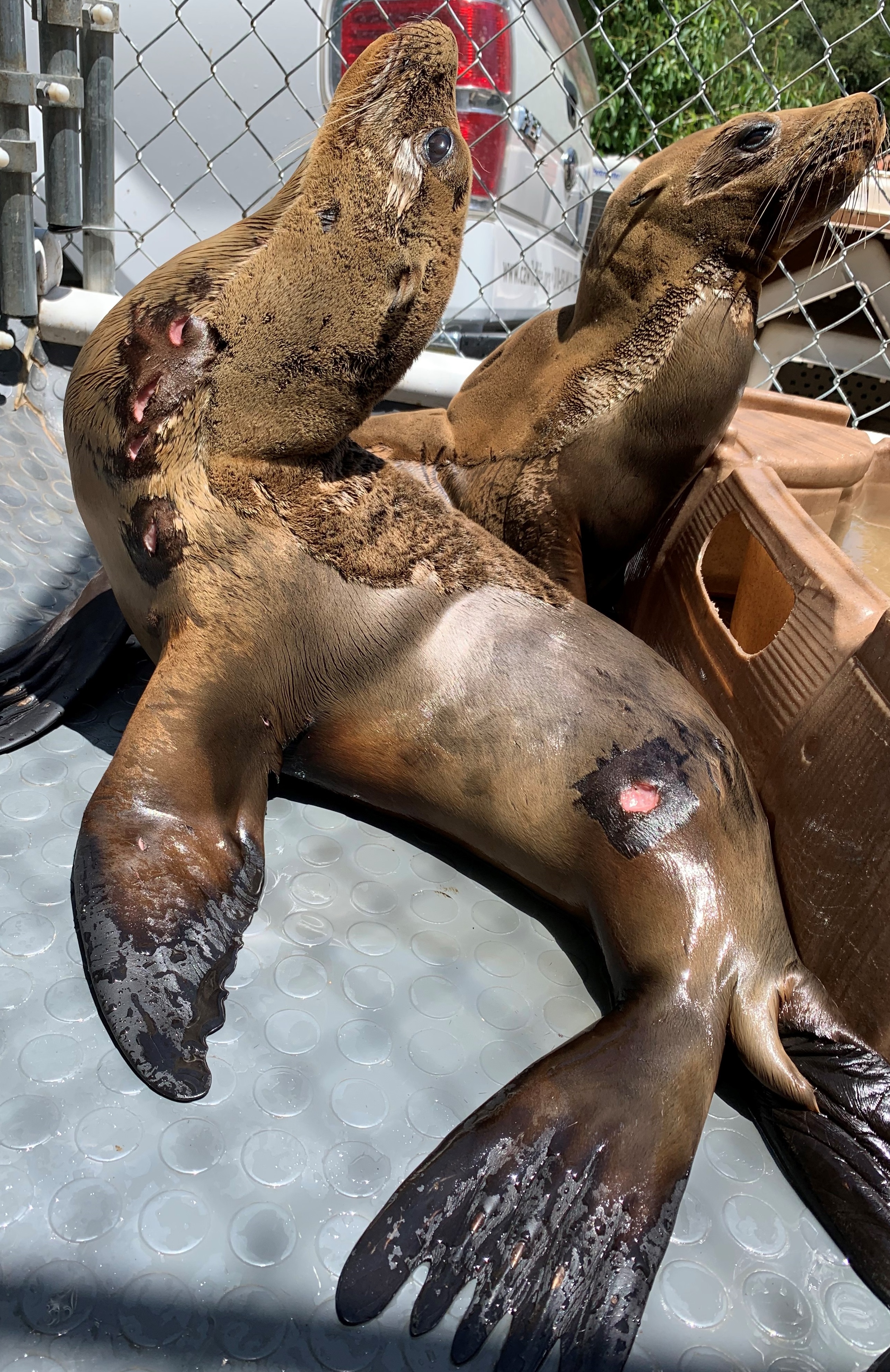CWC Sees Spate of Sea Lions with Shark Bites
By Mike Remski, Marine Program Manager

Sea Lion in Foreground with a Shark Bite
Photo by Mackenzie Glass
The mere mention of Sharks in our coastal waters usually conjures up nightmarish images of horror movies of the past. However, Sharks have always been in our local waters and normally don’t cause any harm — to humans that is. But lately Shark predatory behavior has been a topic of concern when it comes to Sea Lions, specifically for the rescue team at CWC.
Normal diets of large Sharks, like the Great White and the Mako, include mammals and fish and Seals and Sea Lions are at the top of the menu. And although this is the normal circle of life, it can be a difficult situation not only for the animals who survive an attack but for the rehabbers as well.
This past July, CWC has responded to five Sea Lions with injuries caused by sharks. This is on par with what we would normally see in an entire year.
It’s important to understand that the increase in shark-bitten stranded Sea Lions does not necessarily reflect an increase in the number of Sharks present. After all, we are only able to count the number of Sea Lions that survive the attack and make it to shore, while the ones that die at sea and/or become food, will not be accounted for. Also, there is no way to tell where the attack occurred, since a wounded Sea Lion can swim many miles before beaching.
So why the increase in stranded Sea Lions with Shark bites this year? There are a few theories, and although no one really knows for sure, it would make sense that the non-lethal bites are being delivered by young or inexperienced Sharks. But whatever the reason, a live stranded Sea Lion suffering from Shark bites will most likely not do well without help, and that’s where CWC steps in.
Such was the case with CWC patient 19-151. The pup stranded on June 9th with multiple wounds to her neck and hip area. She was one of the lucky ones, as the injuries did not puncture any major arteries or destroy too much tissue. With the help of medications and wound treatments, the CWC staff and volunteers were able to nurse her back to health. After seven weeks of rehabilitation, she was ready to return to her ocean home and was released at Nicholas Canyon on July 31st.
Since July, these shark bite occurrences have tapered off, which is good news for the rescue team and it also seems to calm the nerves of the general public. But as long as you’re not a Sea Lion, you really have very little to worry about.

It is interesting that he/she survived the attack and it didn’t progress to its death.
Yes, she was VERY lucky!